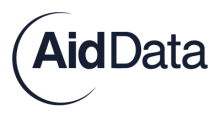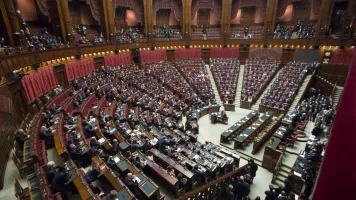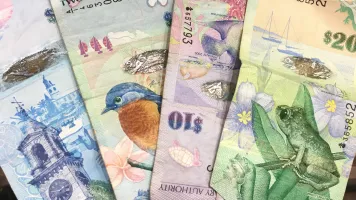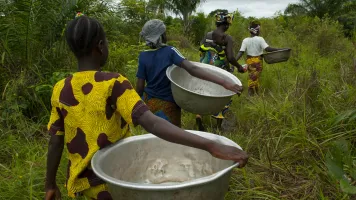AidData helps public, private, and civil society partners connect resources to results for sustainable development. As a research and innovation lab at the College of William and Mary, AidData’s team of 40 faculty and staff -- including data scientists, GIS analysts, economists, political scientists, and international development scholars and practitioners -- combine novel data and rigorous methods to analyze who is funding what, where, and to what effect. Using qualitative, quantitative, and experimental methods, AidData produces cutting-edge research and applied analysis that helps the global development community more effectively target, coordinate, and evaluate investments to end poverty.
AidData is a market leader in piloting and scaling efforts to track under-reported financial flows and assessing the distribution and impact of development investments with a high-degree of geographic precision. AidData brings nearly a decade of experience building customized and interactive data visualization technologies, dashboards, web-maps, and decision-support tools. Through its large-scale survey of 55,000+ policymakers and practitioners from 126 countries, AidData captures unique insights on the performance of development partners and the uptake of data and evidence in the policymaking process to hasten progress towards the sustainable development goals.
Priorities as a partner of the Global Partnership for Sustainable Development Data
2016-2017:
-
Based upon our 2016 Listening to Leaders survey results, AidData will publish a flagship report entitled, "Inside the Black Box: Which Data Do Decision-Makers Prefer and Why", to inform catalytic investments in sustainable development data based upon the revealed priorities and preferences of leaders from 126 low- and middle-income countries.
-
As a provisional winner of the DREAMS Innovation Challenge, and pending final authorization, AidData will collaborate with two organizations -- ToroDev and Akros -- that have a local presence in Zambia and Uganda to design a decision-support tool that marshals the best available data and evidence to reduce HIV/AIDS rates among adolescent girls and women in support of progress against SDG 3.
-
As part of the Global Open Data for Agriculture and Nutrition (GODAN) Action Network, AidData will be working with a consortium of partners in a three-year project to leverage its Listening to Leaders survey to inform data standards, research, and capacity building efforts for greater uptake of open agriculture and nutrition data in support of SDG 2.
-
In partnership with the Columbia Center for Sustainable Development Investments and others, we will seek to apply our SDG tracking and extractives concessions tracking methodologies in one or more countries to assess the sustainable development footprint of the extractives sector with the potential to be replicated and scaled to other countries and industries.
2015-2016:
-
Using data produced through a pilot tracking financing for sustainable development exercise in 2015, AidData will publish a baseline assessment of historical aid financing for the SDGs entitled, "At the Crossroads: Learning from the past, planning for a sustainable future". [In process]
-
AidData will include a module in its Listening to Leaders 2016 survey to capture insights on the current state of sustainable development data use and needs from the perspective of public, private, and civil society leaders from 126 countries. [In process]
-
AidData will lay the groundwork to refine and extend its SDG tracking methodology to other sources of development finance beyond aid (e.g., domestic budgets, non-DAC development partners, philanthropic flows) in one or more pilot countries. [In process]
-
As part of the Governance Data Alliance, AidData will field a snap poll and produce a report for an in-depth assessment of the challenges and opportunities to encourage greater uptake of governance data in low- and middle-income countries in support of SDG 16. [In process]




